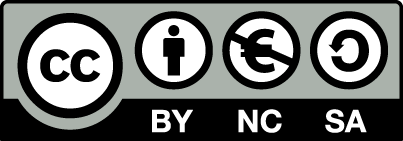Ethical Principles and Publication Policy
ETHICAL PRINCIPLES
The recommendations of ICMJE (International Committee of Medical Journal Editors) and COPE (Committee on Publication Ethics) International Standards for Editors and Authors should be taken into consideration in scientific manuscripts submitted to the journal.
RESEARCH PUBLICATION ETHICS
1-Studies requiring Ethics Committee approval (studies requiring survey or scale application, including interviews and observations; documents, pictures, questionnaires, etc. developed by others and requiring permission for use) (For research conducted in all branches of science, including social sciences, and for clinical and experimental human and animal studies requiring ethics committee approval, separate ethics committee approval must be obtained, this approval must be specified and documented in the article.), the necessary permissions from ethics committees or commissions must be obtained before the research is conducted, and these must be specified in the article content or presented as an attachment. In the absence of these permissions, the publication will be returned to the author at the preliminary review stage.
2-In studies requiring ethics committee approval, information about the permission (name of the committee, date and number) should be included in the method section and also on the first/last page of the article. In case presentations, information on the signature of the informed consent form must be included in the article.
3- Copyright regulations must be complied with for the intellectual and artistic works used.
4-Raw data related to the research under peer review must be provided when requested by the reviewers. It is obligatory to provide the data as needed after publication of the article.
Ethical Rules for Authors
Authors guarantee that their work is original and when they include ideas, language, pictures, graphs and tables of other researchers in their work, they must indicate this as a citation. Citation without acknowledging the source is plagiarism.
Each author mentioned in the study is equally responsible for the content of the study. It is unacceptable that the researcher's name is not included in the study even though he/she has contributed to the study or that his/her name is unfairly included even though he/she has not contributed to the study.
Authors must remain faithful to the findings of their research. Changing the findings, fabricating findings and results, and conducting research based on them are out of the question. Tampering with data and materials, deleting, omitting, or skipping the interpretation of difficult to deal with data is a breach of trust.
Simultaneous submission of work to journals is out of the question. Authors cannot submit their previously published works to the journal.
Code of Ethics for Reviewers
Reviewers should be aware that the evaluation process is confidential and should not be shared with outside third parties.
The referees must submit an objective, impartial, scientific, clear and constructive evaluation report on the manuscript within the set deadline.
Referee reports will include an assessment of the scientific quality of the article (the topic addressed, the methodology used, or the appropriate use of relevant literature). This evaluation, whether positive or negative, must be made on the content.
All articles sent to the journal are checked by the plagiarism program before the evaluation process.
USOBED works under Creative Commons Attribution-NonCommercial-ShareAlike 4.0 International (CC BY-NC-SA 4.0). https://creativecommons.org/licenses/by-nc-sa/4.0/
